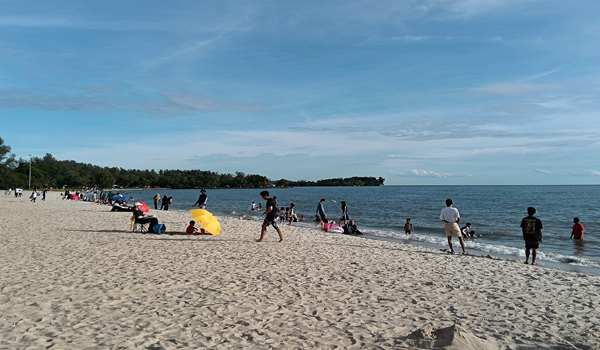
As the world faces increasing environmental challenges, the tourism industry is undergoing a significant transformation. Sustainable tourism, which aims to minimize negative impacts on the environment while supporting local communities, has emerged as a vital trend.
Among the countries embracing this change, Malaysia is making significant strides in sustainable tourism, positioning itself as a leader in eco-friendly travel. With its diverse ecosystems and rich cultural heritage, the country is embracing sustainability as a core element of its tourism strategy, especially considering the upcoming Visit Malaysia Year 2026 campaign.
Tourism Malaysia has launched several initiatives aimed at promoting responsible tourism practices. A notable example is the comprehensive Corporate Social Responsibility (CSR) program on Redang Island, which aligns with the United Nations Sustainable Development Goals.
This initiative involves collaborative efforts from various stakeholders, including local communities, universities, and media influencers, to enhance cultural exchange and environmental conservation. Activities such as beach clean-ups and turtle conservation education are integral to this program, highlighting the importance of protecting marine ecosystems while engaging tourists in meaningful experiences.
The Malaysian government has also introduced the Sustainable Tourism Recovery Project, which focuses on revitalizing the domestic tourism sector post-COVID-19. This project aims to build resilience among local communities and improve risk management related to natural and cultural assets.
It emphasizes inclusivity and sustainability, ensuring that tourism development benefits both visitors and local populations. Additionally, the government, through National Ecotourism Plan (2016-2025) supports green tourism businesses by offering incentives for eco-friendly practices, such as energy-efficient accommodations and waste reduction programs.
Key attractions like the Mulu Caves and Danum Valley are central to Malaysia’s ecotourism offerings. The Mulu Caves, one of the world’s oldest cave systems, and Danum Valley, a pristine rainforest teeming with biodiversity, provide unique opportunities for eco-conscious travelers. These sites not only showcase Malaysia’s natural beauty but also serve as platforms for educational experiences about conservation and environmental stewardship.
Moreover, Malaysia is keen on promoting indigenous cultures as part of its sustainable tourism strategy. Initiatives such as jungle schools allow tourists to learn about traditional lifestyles and sustainable practices from local communities. This approach not only preserves cultural heritage but also fosters a deeper understanding of ecological responsibility among visitors.
As part of its commitment to affordable luxury, Malaysia offers a wide range of experiences that cater to families and adventure seekers alike. From breathtaking beaches to vibrant urban centers, the country ensures a diverse array of options while maintaining its focus on sustainability.
In a recent statement at the Arabian Travel Market 2024, Datuk Dr. Yasmin Mahmood, Chairman of the Malaysia Tourism Promotion Board, emphasized this commitment: “Sustainability is at the heart of our tourism strategy. We aim to rebuild our sector with eco-friendly practices that not only protect our natural resources but also enrich our cultural heritage.”
Furthermore, the Malaysian government has embraced smart tourism initiatives to enhance the tourist experience while promoting sustainability. These initiatives leverage technology to provide digital platforms for information dissemination, booking services, and virtual tours. By integrating these digital solutions, Malaysia aims to reduce the environmental footprint of tourism activities. For instance, virtual tours can offer immersive experiences without physical travel, minimizing carbon emissions.
Additionally, digital platforms streamline the process of accessing information and services, making it easier for tourists to plan their trips efficiently and sustainably. This approach not only enhances convenience for tourists but also supports the broader goal of sustainable tourism by reducing the strain on natural resources and infrastructure.
In conclusion, Malaysia is poised to become a top destination for eco-conscious travellers by integrating sustainability into its tourism framework. Through innovative programs and a commitment to preserving its natural resources and cultural heritage, Malaysia is leading the charge for sustainable tourism in Southeast Asia. As travellers increasingly seek out responsible travel options, Malaysia’s efforts will undoubtedly enhance its appeal on the global stage.
AUTHOR: SUNTHEREN YOGANATHAN, Lecturer Politeknik Seberang Perai & DR. CHE SAMIHAH CHE DALIM, Senior Lecturer, Universiti Tun Hussein Onn Malaysia.
This is the author’s personal view and does not necessarily represent the views or official position of RTM.


